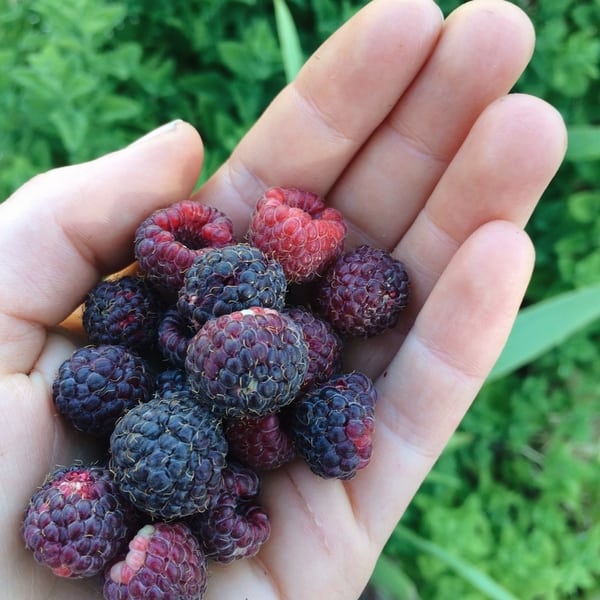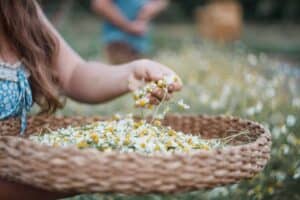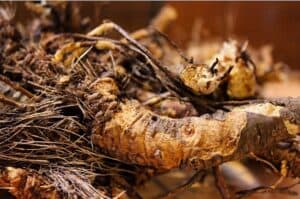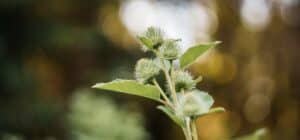Although everyone experiences social anxiety differently, the symptoms of discomfort are often the same; an increased sense of tension, nervousness, and distress when in social atmospheres.
Herbalism can be used before, during, and after occasions to ameliorate the uncomfortable emotional and physical symptoms that result from social anxiety.
By learning about the herbs that assist with social anxiety along with their specific indications, you can identify the remedy that will be most beneficial to you.
In today’s blog post, you’ll learn about:
- The different sources that fuel social anxiety
- Herbal remedies and their specific indications
- Using herbs to manage the physical effects of social anxiety
- The importance of using diet to nourish your nervous system
- Methods to alleviate social anxiety beyond herbalism
Table of Contents
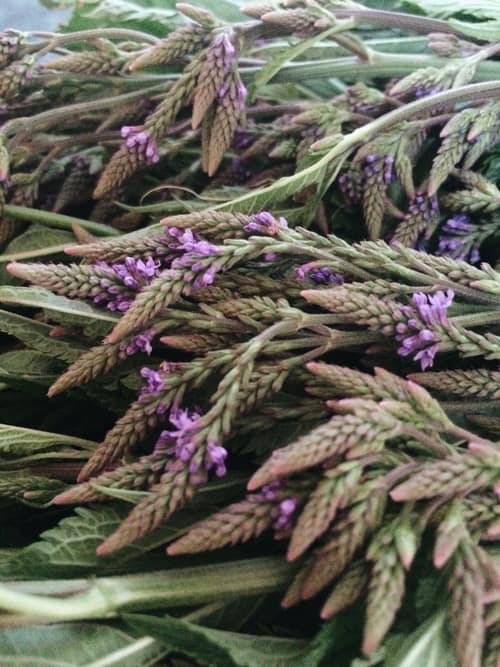
You’re in a room full of strangers, and you’re feeling awkward.
Either you don’t know what to say, you’re feeling nervous in your body, or you’re overstimulated by the sensory input and energies surrounding you. All you want is to retreat to a place where it feels quiet, safe, and you can be alone.
These are all valid ways of experiencing social anxiety.
Although it’s easy to feel alone in this, social anxiety is a shared experience that many of us go through, perhaps more than you realize. I myself used to be borderline crippled with it in my early 20’s, never knowing what to say, harshly judging myself for what I said (or didn’t say) later on, and generally having little to no self-confidence.
One thing I’ve learned is that herbalism can be incredibly effective at reducing the nervousness you feel in social environments, as well as help you address the root source of what might be causing you to feel this way to begin with.
Whether social anxiety is an unwelcome companion you’ve known your whole life or is a new guest you’re just getting acquainted with, there’s a myriad of remedies that can assist you in feeling calm, relaxed, more embodied in social environments, and ultimately more confident in yourself.
Furthermore, if you’re preparing for a party, you’re already at one trying to feel calm and collected, or you’re at home disentangling a web of nerves, herbalism can provide you with the support you need to feel a greater sense of equilibrium throughout the process of working through these emotions and developing the resilience you need to get back out there again.
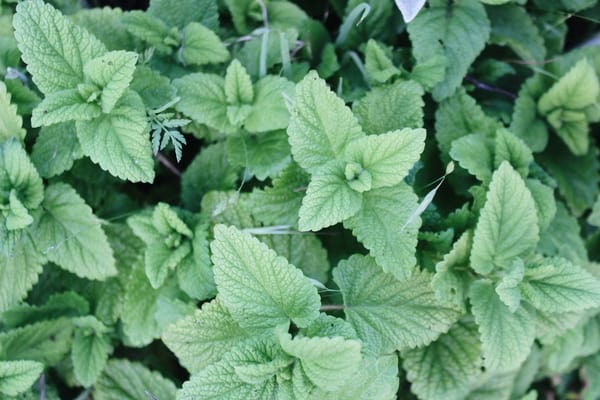
Nervines for Social Anxiety
There are specific indications for different expressions of social anxiety.
Some folks feel uneasy in large social gatherings due to their highly- sensitive and empathic nature. With this disposition, the cacophony of sounds, lighting, and energies surrounding them feels too much to process, resulting in sensory overload.
If this feels like you, using nervine sedative and nervine trophorestorative herbs can assist in increasing your emotional resilience so that when you’re presented with numerous stressors, you feel unflappable rather than overwhelmed.
Nervine sedatives are herbs that possess gentle calming agents that assist in relaxing an overstimulated mind without inducing a state of drowsiness or grogginess; a significant factor since you want to be energized in social environments rather than sleepy. Trophorestorative herbs are ones that help restore functioning and balance to a particular organ or system in the body, in this case, the nervous system.
Some nervine trophorestorative herbs include Milky Oats (Avena sativa), Skullcap (Scutellaria lateriflora), St. John’s Wort (Hypericum perforatum), and Ashwagandha (Withania somnifera). With their soothing qualities, these herbs settle and support an agitated nervous system, especially over a long term period of time.
The gentle nervine sedatives will help acutely cut the nervous edge a bit better than the trophorestoratives, some common examples being Chamomile (Matricaria recutita), Lemon Balm (Melissa officinalis), Catnip (Nepeta cataria), Motherwort (Leonurus cardiaca), and Linden (Tilia europea).
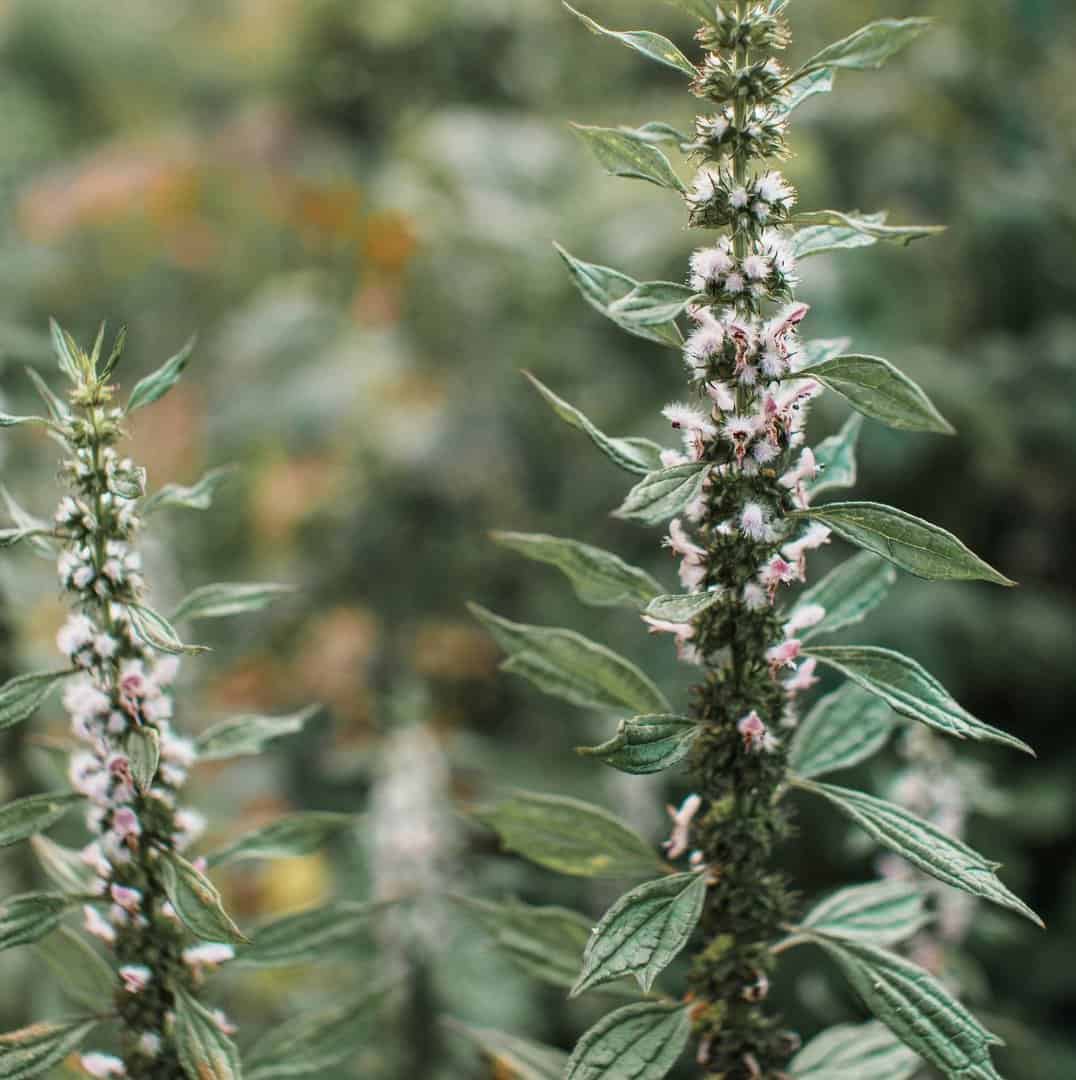
Another reason why people experience social anxiety is that they feel uncomfortable with themselves. Whether this is due to past trauma or from needing to develop a stronger sense of self, being in a social environment can illuminate the dissonance they feel between their inner self and how they share it with the world. This ultimately boils down to our self-confidence.
When you’re alone, it’s easy to feel relaxed. There’s no one you need to invite nor entertain by sharing your inner self. However, when you’re thrust into a social environment, you might feel increasingly self-conscious as you struggle to find the sense of ease that those around you seem to be feeling as they socialize comfortably with others.
If this resonates with you, using nervine herbs can help you get out of your mind and into your body, thereby decreasing feelings of self-consciousness that make it hard to relax into your body and converse freely with those around you.
Because this form of social anxiety is characterized by a paralysis-type fear that leaves you stuck in your mind and tense in your body, nervines are especially helpful to use as many of these possess antispasmodic qualities, thereby relaxing the nervous system and reducing muscular tension in the body that leaves you feeling stiff.
Some herbs to explore in this category include Chamomile (Matricaria chamomilla), a nervine that reduces feelings of agitation; Lemon Balm (Melissa officinalis), which mellows the mind; Blue Vervain (Verbena hastata), which can help those with a Type A personality to let go and relax; and Catnip (Nepeta cataria), which soothes the sensation of “butterflies” that can proceed a social event.
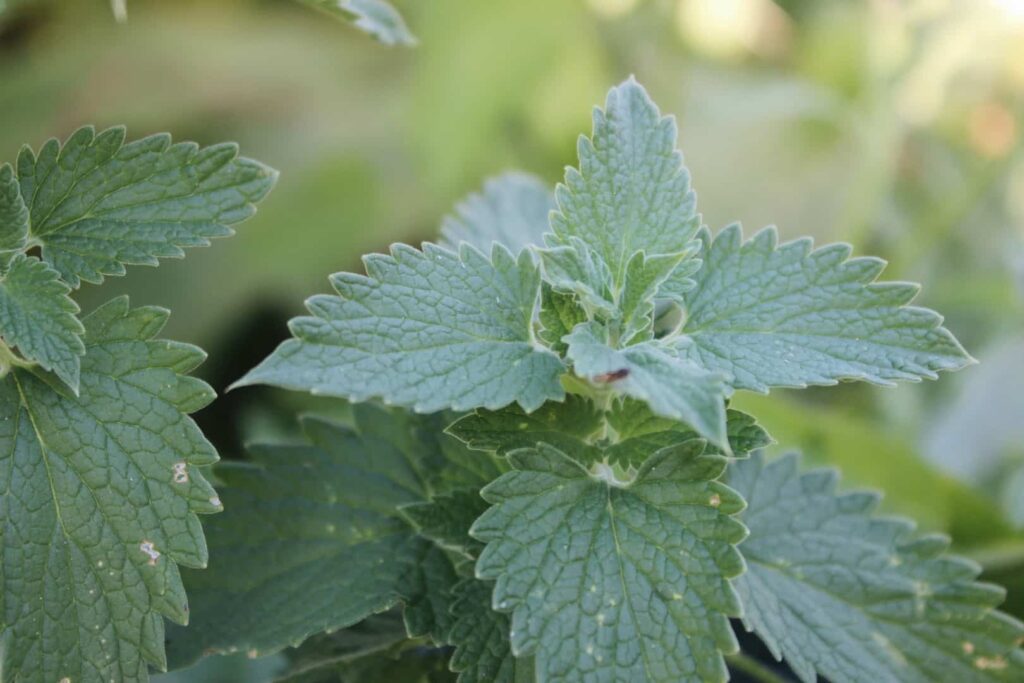
Uplifting Nervines for When You’re Clamming Up
Kava-Kava (Piper methysticum) is an acrid-tasting root traditionally used in the Pacific Islands to induce feelings of relaxation, goodwill, and camaraderie amongst community and friends. A stronger nervine than the ones mentioned before, taking large quantities of Kava-Kava can result in a hypnotic-like state of euphoria, a state many people find pleasure in.
This herb helps you sink into your body and feel deeply relaxed, generating a warm sense of comfort that assists you in feeling connected and comfortable with the people around you. In essence, it induces a slight altered state of consciousness that makes one a bit more loose, relaxed, and able to socialize comfortably.
If you find yourself struggling to find the right words to start a conversation in a social gathering, Kava-Kava may be a great remedy for you as it strips away the doubt that leaves you circling your mind and replaces it with a sense of ease and wellbeing.
While many people use Kava Kava alone, Damania (Turnera diffusa) is an herb that can be added to formulas to enhance the optimization and absorption of the other herbs in the blend, especially when delivering them into the nervous system.
Although Damiana is often famed for its aphrodisiac qualities, it possesses nervine qualities that reduce tension, calms the central nervous system, and positively uplifts mood. With its multifaceted nature, it’s a wonderful remedy to use in social settings and can be particularly helpful for those who find themselves clamming up and turning inward when feelings of social anxiety arise.
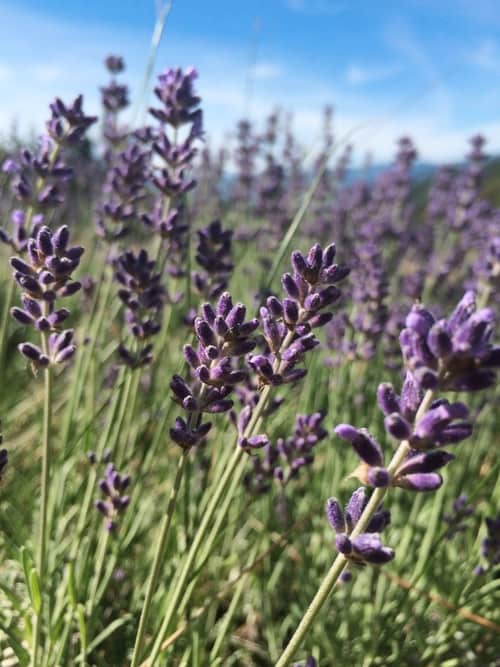
Where Do You Feel It in Your Body?
There are central areas in the body that possess large conglomerations of neural tissue. As a result, focusing on these regions and the herbs that best support them can assist you in ascertaining which herb will help you manage social anxiety best. Some regions where stress is often felt are in the gut, heart, and mind.
If you feel stress in the gut resulting in digestive discomfort such as nausea, stomachaches, or loss of appetite, nervine herbs that are bitter or aromatic assist in relaxing the mind and soothing the gut. Bitter herbs that encourage a healthy appetite and regular digestion while calming the mind include Hops (Humulus lupulus), Skullcap (Scutellaria lateriflora), and Blue Vervain (Verbena hastata). Aromatic herbs that are carminative and rich in essential oils include Chamomile (Matricaria chamomilla), Catnip (Nepeta cataria), and Lavender (Lavendula spp.).
In the case that you experience anxiety culminating with discomfort in the heart region, such as sweating, a racing heartbeat, and a constriction of the chest, herbs such as Lemon Balm (Melissa officinalis), Motherwort (Leonurus cardiaca), Linden (Tilia spp.), and Hawthorn flower (Crataegus spp.) encourage a steady heartbeat, relax cardiovascular tension, and soothe the emotional heart.
If you find that stress has you caught in your head, feeling spaced out, ungrounded, and unable to form coherent thoughts or sentences, herbs that soothe the mind and instill a sense of mental calm are ones helpful to explore. Some to consider are Passionflower (Passiflora incarnata), which is indicated for looping and repetitive thought patterns; Skullcap (Scutellaria lateriflora) for when you’re feeling agitated and overly sensitive to stimuli; and Lavender (Lavendula spp.) for calming and cleansing the mind when you have a hard time letting go and moving on from old thought patterns. I find Wood Betony (Stachys officinalis) to be really excellent here as well for people that tend to dissociate from their surroundings and not be fully present. The Wood Betony person tends to be super ungrounded, lofty, and generally not present.
On Diet
If you struggle with stress and feel it impacting other areas of your life aside from your social life, it’s prudent to assess what your diet consists of.
Starting your day with a triple shot espresso on an empty stomach is a recipe for anxiety, even for the best of us. Consuming nutrient-dense foods, especially in the morning, can encourage stable blood sugar, a steady mood, and optimized neurological functioning throughout the day.
When you want to improve your mental health, the first step is to provide your nervous system and brain with the nutrients it needs to thrive. In conjunction with herbs, a well-balanced diet can further your progress towards supporting strong mental health and strengthened wellbeing. In fact, the herbalist Todd Caldecott’s primary “prescription” for patients with anxiety and nervousness is lamb stew for breakfast. He has found that providing an optimal amount of protein first thing in the morning, as well as avoiding stimulants like caffeine and sugar, are critical to alleviating symptoms of nervousness and anxiety.
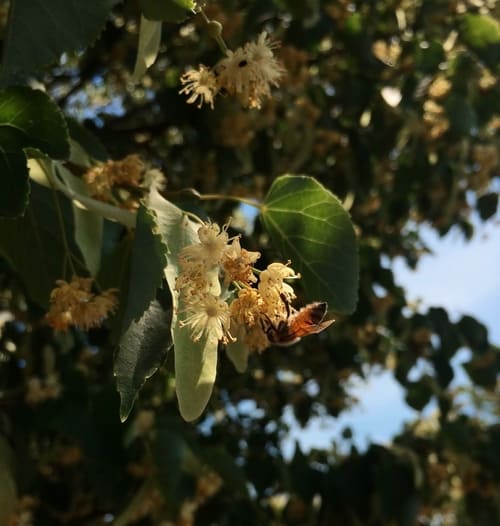
Good Company
Everyone experiences social anxiety differently.
The medicine comes in doing the work when you’re in and out of the social environment. When you’re resting in the stillness of your own home, this is an opportunity to dig deep and excavate what might be fueling those feelings of social anxiety. You can practice inquiry by asking questions such as “When was the first time I felt this way?” or “What in particular challenges me about being in social environments?”
While you are doing this, you can use herbs to assist you in feeling relaxed as you reflect on these questions. When you’re preparing for a social environment, you can use herbs before, during, and after to encourage a sense of relaxation.
Whether the social anxiety visits for a fleeting moment when you’re at a party or it pulls up a chair to stay the night, you don’t need to move through the night alone. With herbalism, you’ll have an ally standing by your side, and I don’t know about you, but that sounds like pretty good company to me.


